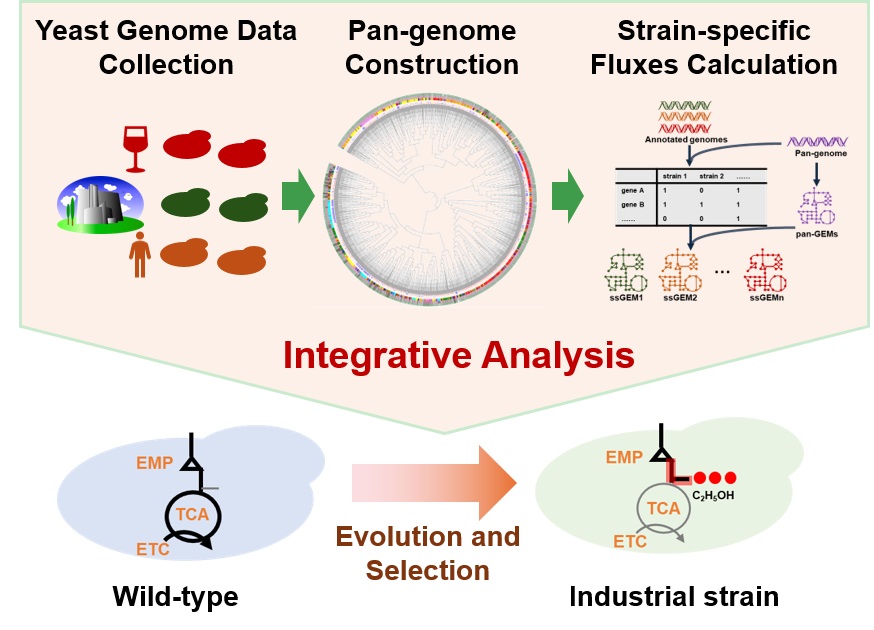Brewer's yeast (Saccharomyces cerevisiae) has served as a cornerstone of industrial biotechnology for centuries. Its exceptional adaptability to diverse natural and industrial environments has led to the emergence of a wide variety of strains, each with unique genetic and metabolic characteristics. However, most research and applications still rely on a few laboratory strains such as S288c and CEN.PK—limiting the discovery of optimal strains for high-performance cell factory development.
A research team led by Prof. ZHOU Yongjin from the Dalian Institute of Chemical Physics (DICP) of the Chinese Academy of Sciences (CAS), in collaboration with Associate Prof. LU Hongzhong from Shanghai Jiao Tong University, has developed a powerful systems biology method to address this limitation. Their study, published in Proceedings of the National Academy of Science, leverages strain-specific metabolic modelling to uncover how yeast adapts to different environments at a systems level.

Strain-specific metabolic modelling workflow for understanding the adaptive evolution of yeast (Image by WANG Haoyu)
Researchers created a high-quality digital resource of the yeast pan-genome and constructed metabolic models tailored to individual strains. Based on this, they developed a novel analysis pipeline that integrates genomic data, metabolic models, and multi-omics information to systematically evaluate different strains.
As a proof of concept, the researchers applied this framework to industrial ethanol-producing strains. Their analysis revealed—at the genetic, transcriptional, and metabolic levels—that enhancing downstream pathways of glycolysis is key to efficient ethanol synthesis. This discovery provides key insights for the rational design of yeast cell factories for ethanol and its derivatives.
"Our work not only provides a comprehensive digital resource of yeast strains for academia and industry," said Prof. ZHOU, "but also offers new methods for evaluating and selecting optimal chassis strains for biomanufacturing applications."